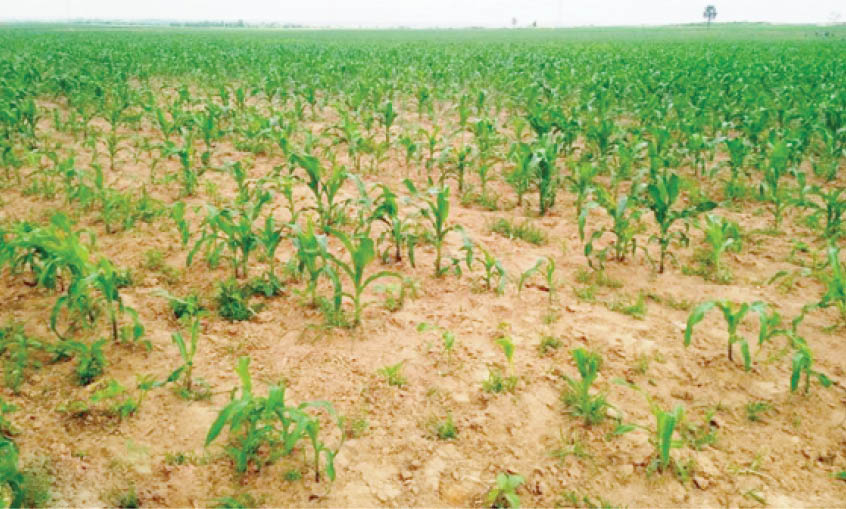Food Security: 40,000 Kaduna women equipped with farm smart agric practices
As the nation grapples with low yield and its resultant effects to food Security, 40,000 women in Kaduna state have been equipped with farm smart agriculture practices to improve their yield. The women, drawn from the 23 Local Government Areas of the state have also been equipped with skills to grow vitamin A variety of […]

maize farm
As the nation grapples with low yield and its resultant effects to food Security, 40,000 women in Kaduna state have been equipped with farm smart agriculture practices to improve their yield.
The women, drawn from the 23 Local Government Areas of the state have also been equipped with skills to grow vitamin A variety of maize to meet their nutritional needs.
Speaking at a stakeholders engagement meeting in Kaduna organised by the Alliance for Green Revolution in Africa, (AGRA), Asabe Hassan, a smallholder farmer from the grassroot women farmers association in the state said in the past, she could only cultivate quarter of a hectare but she now cultivates two hectares of maize, one hectare of sorghum and one hectare of soya beans making four hectares.
According to her, “Before, the women in my community, myself included, used to use the traditional methods to cultivate our farms but with the interventions from AGRA, the lives of over 40,000 women have been changed for the better.”
She said many women have been trained on how to grow and process victim A maize among other crops which she said has improved their yield and their lives by extension.
The Country Director, AGRA Nigeria Mr. Rufus Idris, also emphasized the organization’s commitment to supporting Nigeria’s food transformation, noting that the organisation is operating in several African countries, including Nigeria, to ensure affordable, reliable, and nutritious food in the continent.
According to him, “AGRA through its unique consortium model, brings together partners from the private sector, government, NGOs, and community organizations to address major issues, including resilience and climate change which the Kaduna, Niger and Gender Consortiums are yielding significant results since it embarked on the project.
“We are faced with a lot of shocks from climate change impacts and those shocks require us to also embrace more of farm smart agricultural practices so the consortium are actually working heavily to help farmers embrace those innovations, technology that can make them a more climate smart and respond to Issue of pest, flood and the rest that we are seeing in that space around the period.”
He noted that farmers have been able to adopt more innovative solutions in technology that helps them to increase their yield saying, “For instance people growing maize have been able to see growth between a two metric tons per hectare yield to at least four metric tons per hectare.”
He hoped that in the near future more technology will be improved to confront the challenges of climate change and at the same time, keep the environment more sustainable.
He called on the governments of Kaduna and Niger states to address the issue of land constraints as well as that of the gender policy so that women can also access land to be able to grow what they need.
The Commissioner of Agriculture, Kaduna state, Murtala Mohammed, who was represented by the Director of Agric Services, Ministry of Agriculture Kaduna Bege Dutse Bungwon, said that AGRA has scaled up maize farmers yield from 1.5 metric tons per hectare to 4 metric tons per hectare.
He however noted that Kaduna state government in collaboration with AGRA and other actors are bringing together relevant actors in the agricultural sector to achieve the desired objective.
Also, the Commissioner of Agriculture, Niger state, Salihu Musa Bawa Bosso, represented by Mr. Hassan Umar, said the state has succeeded in improving the productivity of rice which is one of the states major producing crops followed by maize and soya beans.
He said, “AGRA’s 2.0 intervention strategy between 2019 and 2022 has helped us to finalize our Agricultural policies, and between 2018 and 2022 they worked with over 700,000 farmers along the value chain of rice, maize and soya beans.”
